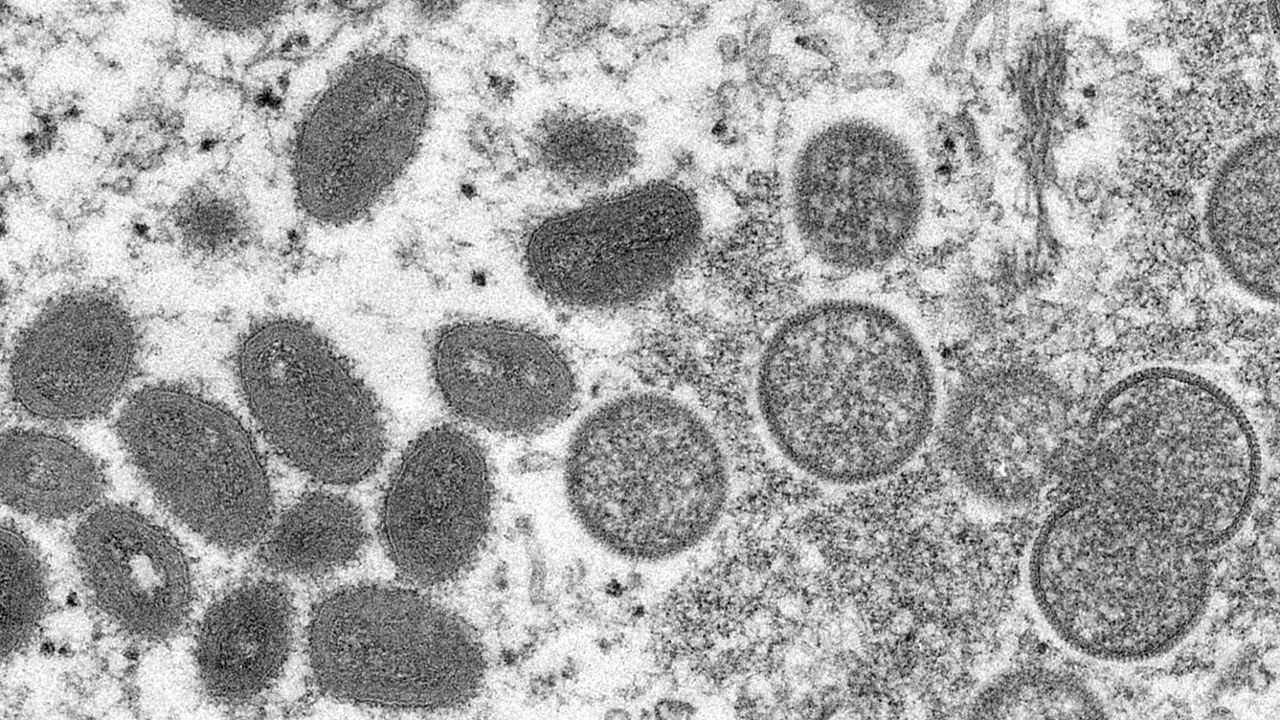The U.S. Centers for Disease Control and Prevention has identified nine cases of monkeypox across the country, director Dr. Rochelle Walensky said at a Thursday press briefing.
As of Wednesday, the agency identified cases in California, Florida, Massachusetts, Utah, Virginia and Washington, with two cases each identified in Florida and Utah. The CDC is also "tracking" a presumed positive case of monkeypox in New York, Walensky added, where health officials said an individual was "diagnosed with confirmed orthopoxvirus" that will be "treated as a probable monkeypox case."
While CDC tests conducted on the individual in New York did not conclusively identify the monkeypox virus, previous tests had detected orthopoxvirus.
"The monkeypox virus belongs to the orthopoxvirus family, and the presentation of this case was consistent with disease caused by monkeypox," officials wrote in a statement on Thursday, adding that the New York City Department of Health and Mental Hygiene "will continue contact tracing."
Some of the individuals who tested positive for the virus recently traveled to international locations with active monkeypox outbreaks, but others did not – and officials are still “doing the hard work of public health, the epidemiology and contact tracing that allows us to trace chains of transmission and hopefully to cut them off,” Walensky said.
Monkeypox is a virus that originates in wild animals like rodents and primates, and occasionally jumps to people. Most human cases have been in central and west Africa, where the disease is endemic.
Monkeypox belongs to the same virus family as smallpox but causes milder symptoms.
Most patients only experience fever, body aches, chills and fatigue. People with more serious illness may develop a rash and lesions on the face and hands that can spread to other parts of the body.
So far, all cases in the United States have been identified in gay, bisexual or other men who have sex with men, though Walensky warned the risk of exposure is not limited to any one community.
“I urge everyone – those in public health, clinical providers and the community – to stand in solidarity with the LGBTQ community, while actively preventing stigma and discrimination,” Walensky said Thursday. “Not to do so would be to all of our detriment.”
White House Senior Director for Global Health Security and Biodefense Raj Panjabi also stressed that anyone who makes “skin-to-skin contact with the lesion, [is] exposed to respiratory droplets or contaminated bed sheets or clothes, for instance, or bodily fluids” of a symptomatic patient would be at risk for contracting the virus.
The U.S. currently has two vaccines and two antiviral treatments that can be used for monkeypox, and the federal government has already started to send vaccines to states with confirmed cases of the virus.
Public health officials are still in the process of determining community spread, but recommend those with known physical or other contact with a person who tested positive for monkeypox be prioritized for vaccination.
A rash of monkeypox cases have also been detected across numerous countries in Europe over recent weeks. To date, the World Health Organization has recorded more than 90 cases of monkeypox in a dozen countries including Canada, Spain, Israel, France, Switzerland, the U.S. and Australia.
On Monday, Denmark announced its first case, Portugal revised its total upwards to 37, Italy reported one further infection and Britain added 37 more cases.
Germany has four confirmed cases linked to exposure at “party events ... where sexual activity took place” in Spain’s Canary Islands and in Berlin, according to a government report to lawmakers obtained by the AP.
Madrid’s senior health official said Monday that the Spanish capital had 30 confirmed cases. Enrique Ruiz Escudero said authorities are investigating possible links between a recent Gay Pride event in the Canary Islands, which drew some 80,000 people, and cases at a Madrid sauna.
The Associated Press contributed to this report.
This article has been modified to indicate that public health officials are monitoring a presumed positive monkeypox case in New York.










